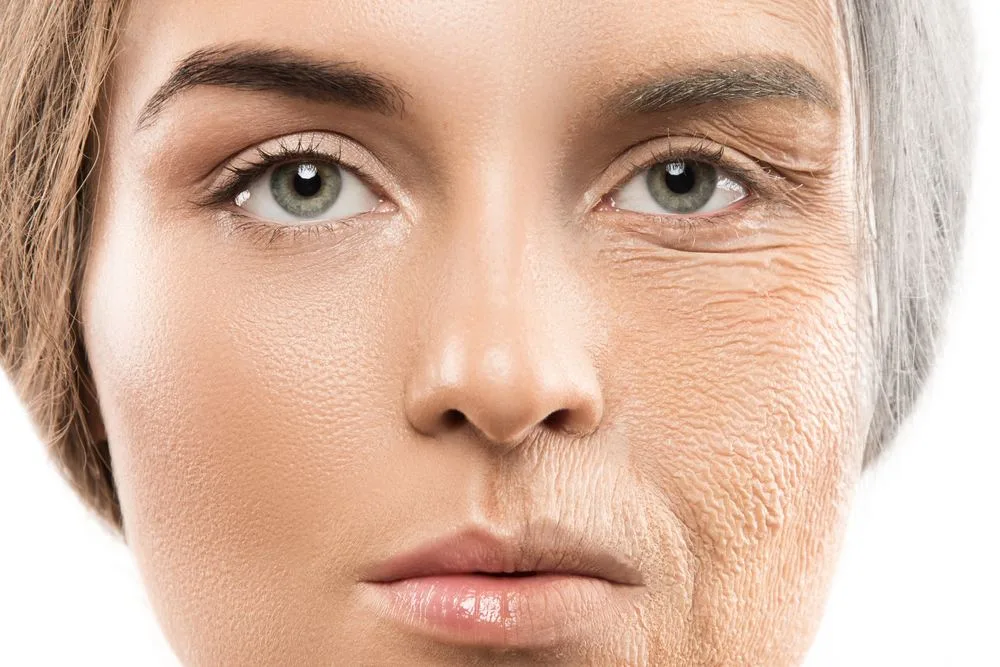As the world’s population continues to age, researchers are looking for ways in which we can age and still maintain good health. One proposed theory that has been put forward to help support healthy aging is calorie restriction. Now, you may associate cutting back calories as part of your weight loss journey. However, studies are showing how the benefits of reducing calories go beyond weight loss.
What Are The Longevity Benefits of Calorie Restriction?
Previous research has acknowledged that calorie restriction can slow down aging and increase lifespan in model organisms. Now, focusing on humans, researchers set out to determine if calorie restriction can slow down biological aging in humans.
For the study, the researchers used data from an ongoing investigation called CALERIE (Comprehensive Assessment of Long-Term Effects of Reducing Intake of Energy), which began in 2006.
The study on reducing calories

Photo by Ola Mishchenko on Unsplash
Per the study, researchers focused on 220 healthy, non-obese men and women and divided the participants into two groups. One group followed a 25-percent calorie-restricted diet, while the other followed a normal diet.
It is important to note that each participant was advised on how to safely cut calories without losing out on the recommended nutrients.
“Participants in this study were closely monitored throughout the study to make sure they were meeting all their macronutrient requirements, and participants’ weight was closely monitored. If anyone lost too much weight, they were instructed to increase their caloric intake,” says study coauthor Daniel Parker, MD to Everyday Health
Each participant had to adhere to their given diet for two years. Parker and his team also used an algorithm called DunedinPACE to measure the participant’s biological age.
Cutting Calories Slows Down Aging
“Our study found evidence that calorie restriction slowed the pace of aging in humans…These findings are exciting because they provide evidence that the pace of biological aging isn’t set in stone, but can be affected by interventions like caloric restriction.”
The findings, published in the journal Nature Aging, found that reducing calories slowed the pace of biological aging by 2 to 3 percent. According to the researchers, this means that calorie restriction reduced one’s risk of mortality by 10 to 15 percent. This number is about the same level of risk reduction as quitting smoking.
Why does eating fewer calories slow down aging?
Daniel Belsky, Ph.D. is an associate professor of epidemiology at Columbia Mailman School of Public Health and a scientist at the Butler Aging Center in New York City.

BLACKDAY/Shutterstock
Speaking to Everyday Health, he suggested that cutting back on calories can trigger a metabolic response that reverses or even alleviates the effects of aging.
Dr. Jamie Justice, Ph.D. is a researcher and assistant professor of gerontology and geriatric medicine. She echoed this theory by adding that when the body or an organism encounters a stressor, it can eventually activate certain pathways that can end up promoting health.
“Restricting calories also gives your body a little bit of stress at the cellular level and creates changes in pathways that are associated with lifespan, including those that involve human growth hormone and insulin,” she says.
Is calorie restriction safe in the long term?
It would be advisable to speak to your doctor first before adopting any sort of calorie-restrictive diet. Granted, there is no danger in cutting back on your calories. However, the concern is when you fail to get the recommended amount of nutrients. It’s best to talk to your doctor so that you can adopt a calorie-restrictive diet that ensures you meet all your nutrient needs.
What about intermittent fasting?
If you’re worried about calorie restriction, there are other ways to induce the same benefits in your body. In fact, time-restricted eating like intermittent fasting can do wonders for your body. If you need more convincing, here are 10 ways intermittent fasting can improve your longevity.
MAIN IMAGE CREDIT: Dexailo/Shutterstock
References
Heilbronn, L. K., & Ravussin, E. (2003). Calorie restriction and aging: review of the literature and implications for studies in humans. The American journal of clinical nutrition, 78(3), 361–369. https://doi.org/10.1093/ajcn/78.3.361
Waziry, R., Ryan, C.P., Corcoran, D.L. et al. Effect of long-term caloric restriction on DNA methylation measures of biological aging in healthy adults from the CALERIE trial. Nat Aging (2023). https://doi.org/10.1038/s43587-022-00357-y





![women [longevity live]](https://longevitylive.com/wp-content/uploads/2020/01/photo-of-women-walking-down-the-street-1116984-100x100.jpg)









